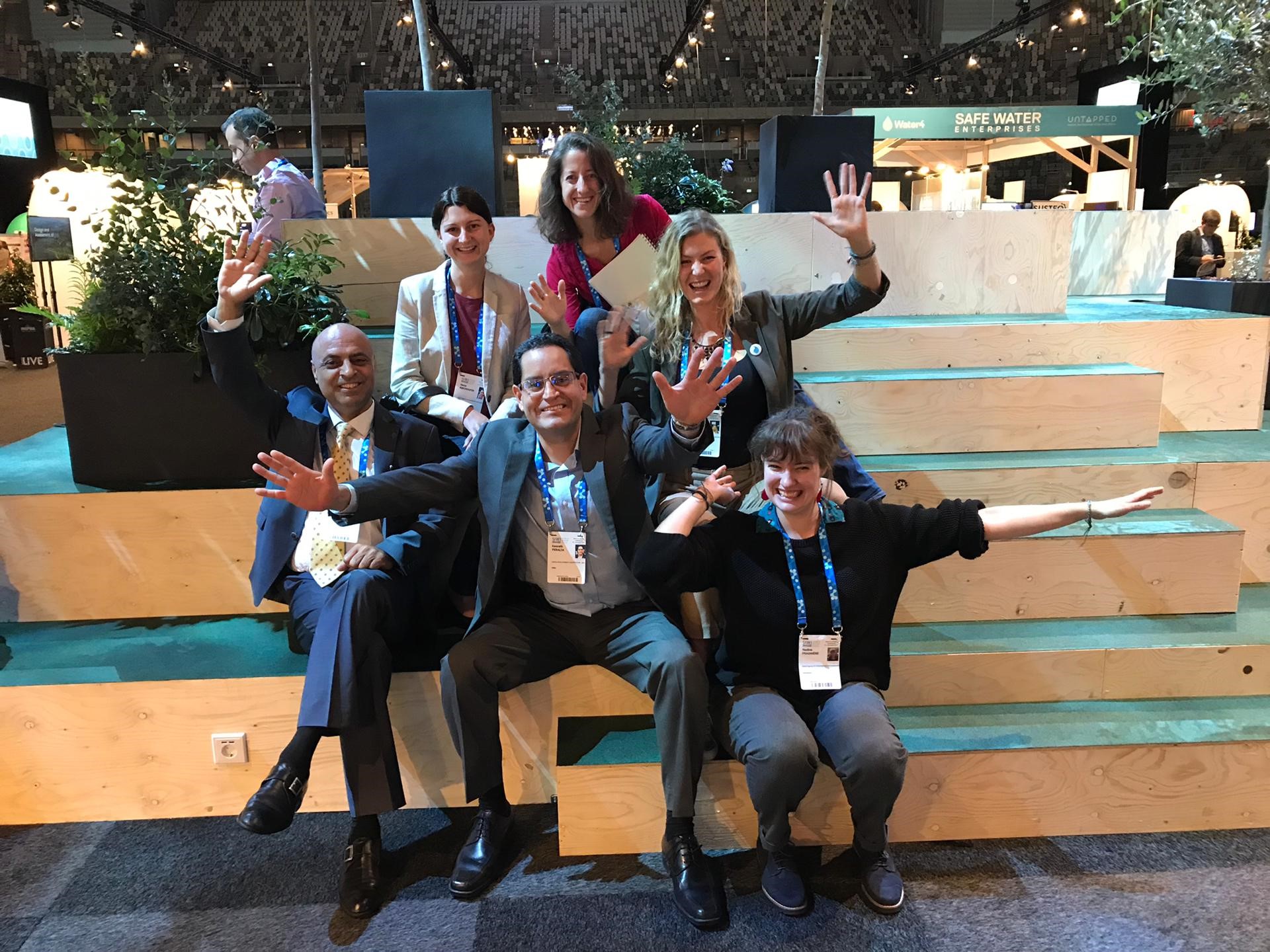1. Can you tell us a few words about yourself and your background? I
come from the canton of Wallis in Switzerland and grew up in Veysonnaz,
a small ski station in the heart of Europe's water tower, the Alps.
From an early age, I was aware of the highly politicized conflicting
interests linked to water resources (environmental vs. economical, for
instance). I have a BA in Political Science (Geneva) and an MA in Water
Science, Policy and Management (Oxford). 2. In August
2019, you were at the Stockholm World Water Week (SWWW), where you
informed the RésEAU members about sessions, discussions, and insights.
How would you describe this experience from a personal point of view? It
was the first time I attended such an event. It was a real marathon
beginning in the morning attending conferences, going to side events
such as operational meetings and roundtables with partners, and finally
ending the day with receptions or social events – not to forget the
RésEAU chronicles that I usually prepared in my bed in the early
morning. Despite the lack of proper sleep, it was an extremely enriching
experience. My brain was constantly active, processing so many
different impressions that I gathered during conferences or private
discussion with people I met. 3. Professionally, what was the most exciting, and what was the most surprising for you at the SWWW? Despite
the various topics presented in conferences, I was surprised to observe
a quite clear distinction between technical, scientific and social
topics. I had the impression, that when presentations were more linked
with social and political topics, the evidence was somehow lacking while
when presentations focused on science, then the societal implications
were quasi-absent from the discussion.
4.
Can you tell us about one specific insight you gathered? Apart
from the position statements of people, attitudes and personal opinions
played an important role in the debate. I have never thought that the
role and personality of individuals within institutions would play such a
crucial role and I will definitely not underestimate it in the future.
Alongside thematic knowledge, people skills are crucial in this work to
really listen to people and to create constructive partnerships by
keeping away negative prejudices linked to previous experiences.
5. For other people early in their professional career, what do you recommend for future SWWWs? Definitely
apply to be a young reporter with the Stockholm International Water
Institute (SIWI)! Even more than being created for organizations and
donors, this week is celebrating youth and young professionals. It is a
great opportunity to find study programmes, internship opportunities and
connect with organisations involved in the water sector. Outside the
knowledge that you will acquire, it is the human experience - within
your team and with the numerous people you will meet there - that is at
the heart of this event.
| |  Impression from Stockholm World Water Week 2019, where the team spirit is key (Nadine at the bottom right)
|
